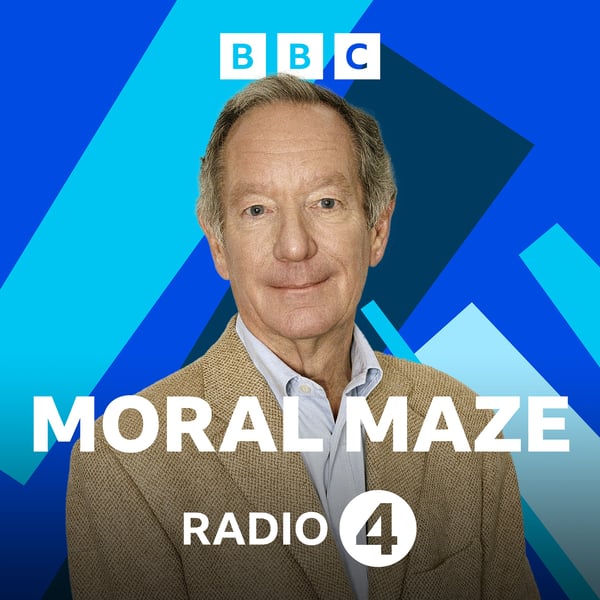The Morality of Ends and Means
Moral Maze
BBC
4.5 • 609 Ratings
🗓️ 29 October 2018
⏱️ 43 minutes
🧾️ Download transcript
Summary
First it was Salisbury and now it’s Istanbul. Once again the news outdoes the most lurid spy thriller. This time the story features the bumping-off of a dissident journalist as he collected divorce papers from a Saudi Arabian consulate, while his fiancée waited for him outside. At first, the Saudis flatly denied the killing of Jamal Khashoggi, saying he left the building unharmed. Now the Kingdom admits he died in a "rogue operation" - without explaining unverified reports of a team of suspected agents arriving from Riyadh in two private jets, accompanied by a pathologist with a bonesaw. How should Britain and her allies respond to this dark episode? Is it time to cut ourselves loose from Crown Prince Mohammed bin Salman? The young ruler has been a reformer; he has let women drive and curtailed the oppressive religious police. On the other hand, those who care about human rights are concerned about the oppression of his political opponents. Bin Salman said recently that he was ‘trying to get rid of extremism and terrorism without civil war’. Is that an effort we should be supporting? Many believe we should stop supplying weapons to Saudi Arabia when we know they will be used to blow up children in Yemen. Others say it is hypocrisy for us to take the moral high ground and that we should be concerned only with what is in our national interest. More generally, when is it morally acceptable to make alliances with bad people in order to defeat worse people, or to allow bad things to happen in order to avert greater evils? When, if ever, does the end justify the means? Witnesses are: SORIN BAIASU, Professor of Philosophy at Keele University and Secretary of the UK Kant Society; DR STEPHEN DE WIJZE, Senior Lecturer in Political Theory at Manchester University; DR NEIL QUILLIAM, Senior Research Fellow in the Middle East and North Africa Programme at Chatham House; and ANDREW SMITH, Campaign Against the Arms Trade.
Producer: Dan Tierney
Transcript
Click on a timestamp to play from that location
| 0:00.0 | This is BBC Radio 4, where it's time now for the Moral Maze. Live as usual, here's Michael Burke. |
| 0:06.3 | Good evening. It's human nature, I suppose, that one man's tragedy moves us more than a whole nation's torment. |
| 0:12.0 | The extraordinary murder of the dissident journalist Jamal Khashoggi has put the Saudis in the dock in a way their war in Yemen, which has killed thousands of civilians and pushed millions to the brink of starvation, never could. |
| 0:23.9 | That war, which they are fighting with our weapons and support, is complex, of course, and being fought we are told to stave off greater evils. |
| 0:31.7 | Khashoggi's death, on the other hand, was simple, brutal and breathtakingly barefaced. |
| 0:36.2 | If so far unverified reports are to be believed, |
| 0:39.3 | teams have highly placed Saudi security agents |
| 0:41.9 | and a pathologist with a bone sore |
| 0:43.7 | flew in private jets to Istanbul. |
| 0:46.4 | In their country's consulate of all places, |
| 0:48.6 | they killed Khashoggi when he called in |
| 0:50.2 | to collect a copy of his divorce papers. |
| 0:52.7 | The Saudis have finally admitted he was murdered, |
| 0:55.1 | by rogue elements, they say, few are convinced. What to do? The Saudi Crown Prince, de facto |
| 1:00.7 | ruler of the kingdom, had seemed to be liberalising some of the more repressive social aspects |
| 1:05.4 | of the regime and curbing the export and promotion of Salafist extremism. They are by far the biggest customer for the British arms industry, pretty much the only manufacturing sector we still own. |
| 1:17.2 | Thousands of our jobs depend on their orders. They can easily buy arms elsewhere. Stopping our trade with them may seem right, may feel worthy, but our people will suffer and what will be achieved. |
| 1:28.9 | Lots of moral issues here. Is it acceptable to befriend the bad in order to oppose those worse? |
| 1:34.5 | Is self-interest a moral justification? And the big philosophical question, should our actions be |
| 1:39.9 | judged by motive or consequence? That's our moral maze tonight. The panel, Melanie Phillips, |
| 1:44.3 | social commentator at the Times, Mona Siddiqui, Professor of Islamic and Inter-Religious |
| 1:48.4 | Studies at Edinburgh University, and McCelvoy, Senior Editor at the Economist and the Anglican |
... |
Please login to see the full transcript.
Disclaimer: The podcast and artwork embedded on this page are from BBC, and are the property of its owner and not affiliated with or endorsed by Tapesearch.
Generated transcripts are the property of BBC and are distributed freely under the Fair Use doctrine. Transcripts generated by Tapesearch are not guaranteed to be accurate.
Copyright © Tapesearch 2025.

